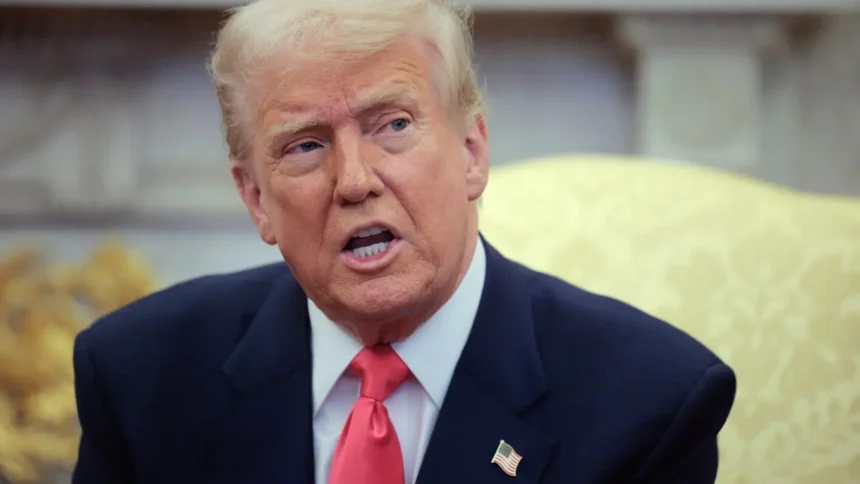The Trump administration has cut off $175 million in federal funding to the University of Pennsylvania (UPenn), citing its transgender athlete policy as the reason.
This marks a major escalation in the national debate over transgender participation in women’s sports.
The move comes after UPenn allowed transgender women to compete against biological females, a decision that sparked controversy and legal challenges.
Now, with this funding freeze, the battle between federal policy and university autonomy has reached a boiling point.
Trump’s Executive Order: A Bold Move Against Transgender Athletes
On February 5, 2025, President Donald Trump signed an executive order titled “Keeping Men Out of Women’s Sports.”
This order bars biological males from competing in female sports categories, even if they identify as transgender.
Trump’s administration argues that allowing trans women (biological males) in women’s sports undermines fair competition and violates Title IX, a federal law designed to ensure equal opportunities for female athletes.

UPenn has been at the center of this debate since Lia Thomas, a transgender swimmer, dominated women’s NCAA competitions.
Her victories ignited a nationwide debate on whether transgender athletes have an unfair biological advantage.
Where Did the $175 Million Come From?
The funding freeze targets two major sources of UPenn’s federal funding:
- Department of Defense (DOD) Grants: UPenn receives millions in defense contracts for research in cybersecurity, medicine, and engineering.
- Department of Health and Human Services (HHS) Funding: This money supports medical research, scholarships, and public health programs at UPenn.
How Will This Impact UPenn?
UPenn relies heavily on federal funds, receiving around $1 billion annually from government sources. Losing $175 million could have serious consequences:
- Academic Research Disruptions: Defense and medical research programs may lose crucial funding.
- Scholarship Cuts: Students receiving federal grants could face uncertainty.
- Potential Legal Battles: UPenn may challenge the funding freeze in court, arguing that transgender athletes have legal protections under anti-discrimination laws.
Could Other Universities Be Next?
Trump has made it clear that UPenn won’t be the only target. The Department of Education has launched investigations into other institutions, including:
- San Jose State University
- Massachusetts Interscholastic Athletic Association
Both schools allow transgender women to compete in women’s sports, and they could face similar funding cuts under Trump’s new policy.
The Divided Opinions on Transgender Athletes
This decision has deepened the divide in the ongoing debate:
Supporters say Trump’s action protects fair competition for female athletes.
Critics argue it’s an attack on transgender rights and could violate federal anti-discrimination laws.

As lawsuits mount and universities push back, the legal and political battle over transgender athlete policies is far from over.
What Happens Next?
UPenn has yet to announce its next steps, but legal experts predict court battles over Title IX and federal funding regulations.
Trump’s administration, however, shows no signs of backing down. With more universities under scrutiny, this funding freeze could be the start of a nationwide crackdown on transgender athlete policies.
James is a talented content writer and digital researcher. He focuses on topics like investments, finance, scams, and product reviews. He works hard to uncover the truth behind online claims and explains things clearly. James is also great at spotting scams and sharing honest advice with readers. When he isn’t writing, he enjoys playing chess and basketball, blending his strategic thinking with a love for both quiet focus and active fun.







